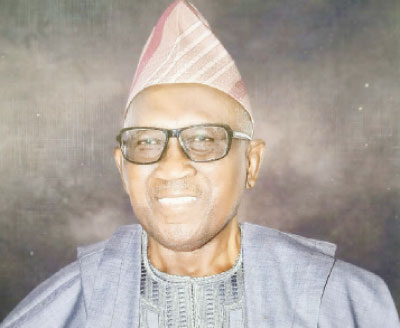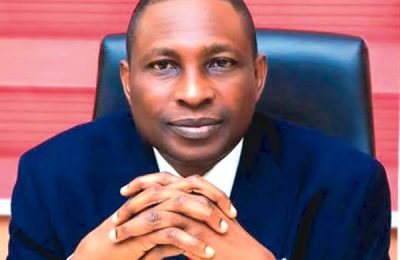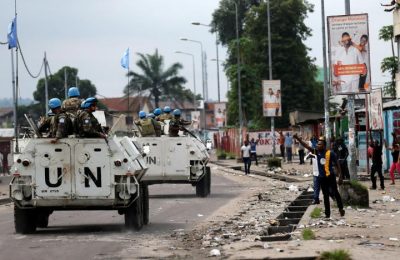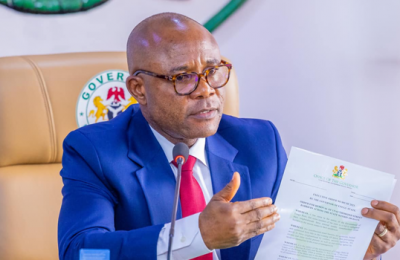
Babajide Akinremi Soyode is an engineer and Technical Consultant to Africa’s richest man, Aliko Dangote on Dangote Refinery project. He is also the President of Atlas Polygenics Limited, an oil and gas engineering consulting firm, and chairman of the Board of Directors of Petrodata. In this interview, he shares his life story.
What is the story behind your name ‘Babajide’?

I am the first son to my father and his siblings after the death of their father. I am referred to as the reincarnation of my grandfather. I never met my grandfather but my father usually called me his grandfather. My father could not tell me about his late father because he (my father) died when I was 13 years old. Before my dad died, he was a national tailor; he sewed clothes and took them to Northern states like Kano, Kaduna and even Borno.
So, what role did your mum play in all of these?
First and foremost, discipline. It was an uncompromising and loving discipline. Also in those days, we were not really rich. So, she had to work and support us. At one time, she sold her clothes to send me to school. In my primary school days, I went to Olowogbowo Methodist School in Lagos. Unfortunately, in my last year in the school in 1954, my father died and I was only 13 years old. Then, I gained scholarship to CMS Grammar School via Western Missionary Scholarship. I was quite brilliant just like others. I always took first, second or third position in class. Mind you, I failed in my first year. After that time, I took first, second or third position throughout my stay in the school. The scholarship took me through from primary school till the end of my secondary education. My late uncle, Chief Adetunji Soyod, also assisted me. He was working with the United Africa Company of Nigeria (UAC). My mum played a major role in all ramifications, particularly being a disciplinarian as mentioned earlier.
To what degree was she a disciplinarian?
When you do what you are not supposed to do in those days, you would be disciplined through beatings and slaps. My mother would not use cane but slaps, pulling of ears, pinching and whatever is required. I remember one Sunday that we were supposed to go to church, but I felt malaria, but my mother did not say anything and they all went. In their absence, I went to play football at the local stadium in Elegbata. My mother did not also say anything. But when I continued to exhibit symptoms of the illness in the evening, then she said ‘oko mi, o ya wa gba’ (my husband, come and take). That was how she lured me into the room and locked the door; the rest is history. Once she locks the door against you, nobody can save you. Even if my father was home, he wouldn’t interfere. I also remember an occasion where my late brother made jest of me after a drop of hot tea fell on my hand. My mother was so annoyed with him for laughing at him. She threw the cap of the groundnut oil bottle at him and that left a mark on his head till he died. Her point was why would you make jest of your brother in a serious incident? Otherwise, she was loved by everybody.
Suffice to say her disciplined nature contributed to your good performance in school?
Probably, but I had no choice because I really like to work. She never really asked for my grades. She did not even know my school. In those days, parents don’t. It is these days they do all those things. In those days, you dare not go and report your teacher to your parents because you would get additional punishment if you do. They won’t even ask why because they believed the teacher knows best. Besides, I knew that I picked the traits of being kind, reasonable, considerate and humble from her. So, after Olowogbowo Methodist School, CMS Grammar School was a theatre of experience when I became the senior prefect in my last year.
What about it?
It was enjoyable. We started the school near Tinubu area of Lagos before we moved to Bariga. We moved to Bariga in 1958. In those days, you don’t care who is who, you just do your work. I played football for the school for the entirety of the time I was there. They gave me a nickname ‘Smutee’ from the word ‘Smart’ and I think this was partly because of my academic brilliance and you know we usually find a name or two for ourselves. So, one of the striking experiences at the school was that I was sent to Man ‘O’ War in Old Southern Cameroon. I was 18 years old then and I had to go to Cameroon from Lagos by road. There was only one way to go into Cameroon for one day. And if you go to the other side of the road by mistake, they would never see the vehicle again. The road was that bad. I don’t know what the condition is now though. So, it was a leadership training programme for three weeks. I think as a result of that, I was appointed the senior prefect.
So, why were you sent on that course?
Only my principal can say. I think they had eyes on me because of my academic brilliance. In those days, it was a leadership programme for the youth and they sent students from different schools. We had to go and swim in the ocean then. We had to go on Mount Cameroon. I had never experienced that before. It was during a cold weather. We had to walk up the mountain which was still shaky. We had to cook our food in small iron containers and it was really interesting.
So, how was the feeling when you got back?
It was same thing. I joined my classmates. Nothing special, but it was the experience that gave me leadership role in the school as the head boy.
Do you remember a decision you made that did not sit well with the students as the senior prefect?
There was a class that was very stubborn and I had to deal with them once. So, they set a trap for me. Fortunately, I didn’t fall victim of the trap. I just sent them all out for the day.
Why did you choose your career path?
When I finished in the 60’s, I did not even take exams to enter A-levels because there was no one to pay. I wanted to enroll for Navy training but I knew my uncle would not approve of it. So, I took an exam called the African Scholarship Programme for American Universities, which was started because of the successful performance of some Nigerians in America at that time. The programme was to help African nations develop future leaders. Most of the time, only a few A-level graduates were successful in the exam, but I was one of the few Standard 5 graduates that were successful in it. That was how I went to the United States of America. I studied at Purdue University, Indiana.
How was your experience when you left the country for the first time?
It was nice. We flew from Nigeria to France and took boat to New York. It was an 11-day training on the boat that was used for our orientation. We used the period to learn the culture of the US. In fact, I remember that I was sick for the first two days of the trip. After that, it was fun. We engaged in a lot of activities like playing games, acting, swimming and all that. When we got there, we saw tall buildings, but we were excited about the task ahead. So, I had another week in Philadelphia. It was hotter than I ever experienced in my life. I had never been that hot in my life. I was in the bathtub for the whole day. So, I studied Chemical Engineering because Chemistry was my best subject.
How was the experience at the university?
I did my work and I think I did quite well throughout the four years that I spent there. After my B.Sc., I went straight up for my Masters and started work at Sun Oil Engineering in 1967. I had left Nigeria in 1961 and I did not return to Nigeria until 1970 for the first time.
Would it be correct to say your steps in life were made by providence?
Yes, by the grace of God. First of all, my father died. That could have been more or less the thing but it did not happen. I got scholarship all the way to the university. When I finished my master’s degree and I went to a company where they gave me US Residency, just like that! I did not apply for it and it was for a lifetime. Well, things were much easier in those days. There was nothing like 9/11 and all those things that later changed the world.
You later came back to Nigeria thereafter?
Yes, I came back because that had been my desire; home is home. I worked in the US for seven years and then came back. When I got here, I worked in Nigerian National Oil Corporation (NNPC) formerly called Nigerian National Oil Corporation (NNOC). Then, it was merged with the Federal Ministry of Mines and Power before it became NNPC in 1974. I was recruited from the United States before I came to Nigeria. So, when I came, I specifically requested for Warri Refinery project. In fact, I only spent five months before I went out again for three years. I went to the UK, Brazil, France, and one other. Amidst all this, I was following up refinery project. Then, I went on the Kaduna Refinery project which I had started. I did a couple of others till I retired in 1990.
When did you decide to get married?
That was long after I finished. Like I said, I came back to Nigeria in 1970 to see my parents and siblings. But, I got married the following year to an American; we were colleagues at work. We have three boys and a girl.
You worked with Alhaji Aliko Dangote on the Refinery Project as his technical consultant. What can you say about him?
His work ethic is second to none, same for his deep love for Nigeria and Africa; I saw it myself. He came to the plant every day when work on the refinery was going on. I have never seen that in my life. He does not only put his money down, he also follows it. Do you know his personal motto? It is ‘nothing is impossible’. And to him, nothing is impossible. This refinery project demonstrated it because there were times we did not see how we were going to go on but he went on. He is a nice man; when you work for him, he will not let you go no matter what. There was a time I said, “Please, don’t come to the refinery again, Alhaji.” But he said: “Engineer, I cannot do it. I must come.”
READ ALSO: Tithe: ‘It takes humility to apologise’, Mike Bamiloye defends Adeboye








